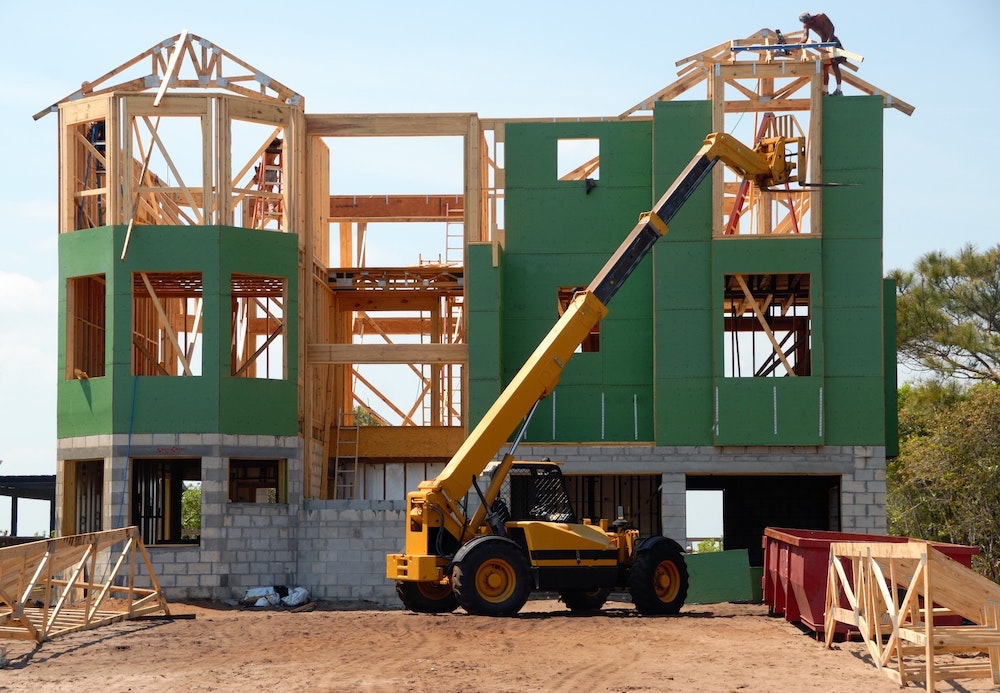The surge in house price growth through the pandemic has reduced housing affordability to the lowest level on record, new research by Halifax has revealed.
Halifax’s analysis, based on data from the Halifax House Price Index, compared typical house prices to average earnings across the UK.
In the first quarter of 2022, the cost of an average UK home was £279,431, while the average annual earnings of a full-time worker were estimated to be £39,402. This puts the house price to income ratio at 7.1 – the highest, or least affordable, level ever recorded.
At the start of 2020, Halifax’s data showed that average UK earnings were £38,374 and the average house price was £239,281, which put the house price to income ratio at 6.2. Since then, however, house prices have risen by 16.8%, with earnings up by 2.7% over the same period.
For historical context, the last time UK house prices experienced such sustained growth in house prices, leading up to the summer of 2007, average earnings were £30,508 while the typical house price was £194,207. This generated a house price to earnings ratio of 6.4.
Last year also saw first-time buyer numbers rise at a record rate of 35% to reach an all-time high of 409,370. At a national level, the first-time buyer house price ratio is now 5.6 times average earnings, compared to home movers at 8.5. However, first-time buyers also saw a squeeze in affordability as prices rose quickly during the pandemic, increasing the challenge of raising a suitable deposit without the benefit of a corresponding increase in the value of an already-owned property.
Halifax mortgages director, Andrew Asaam, commented: “There’s no question that the economics of buying a home have changed significantly over the last couple of years. Soaring property prices and slower wage growth have combined to stretch traditional measures of housing affordability.
“However, we also know from strong transaction levels that demand has remained extremely strong over that period, both from home-movers seeking bigger properties, and first-time buyers taking their first steps onto the ladder.
“With interest rates on the rise as a means of combatting inflation, it’s unlikely that house prices will continue to grow at the pace we’ve seen recently. This should see the gap between average earnings and property prices narrowing over time.
“It’s also important to highlight the responsible approach taken to mortgage lending in this environment, with lenders conducting thorough checks to ensure repayments are manageable even if interest rates rise more sharply in future.”
Mortgage Advice Bureau and AI in the mortgage sector
Chief executive officer at Mortgage Advice Bureau, Peter Brodnicki, and founder and managing director at Heron Financial, Matt Coulson, joined content editor Dan McGrath to discuss how Mortgage Advice Bureau is using artificial intelligence to make advancements in the mortgage industry, the limitations of this technology and what 2026 will hold for the market
Perenna and the long-term fixed mortgage market

Content editor, Dan McGrath, spoke to head of product, proposition and distribution at Perenna, John Davison, to explore the long-term fixed mortgage market, the role that Perenna plays in this sector and the impact of the recent Autumn Budget
NEW BUILD IN FOCUS - NEW EPISODE OF THE MORTGAGE INSIDER PODCAST, OUT NOW

Figures from the National House-Building Council saw Q1 2025 register a 36% increase in new homes built across the UK compared with the same period last year, representing a striking development for the first-time buyer market. But with the higher cost of building, ongoing planning challenges and new and changing regulations, how sustainable is this growth? And what does it mean for brokers?
Does the North-South divide still exist in the UK housing market?

What do the most expensive parts of the country reveal about shifting demand? And why is the Manchester housing market now outperforming many southern counterparts?
In this episode of the Barclays Mortgage Insider Podcast, host Phil Spencer is joined by Lucian Cook, Head of Research at Savills, and Ross Jones, founder of Home Financial and Evolve Commercial Finance, to explore how regional trends are redefining the UK housing, mortgage and buy-to-let markets.
In this episode of the Barclays Mortgage Insider Podcast, host Phil Spencer is joined by Lucian Cook, Head of Research at Savills, and Ross Jones, founder of Home Financial and Evolve Commercial Finance, to explore how regional trends are redefining the UK housing, mortgage and buy-to-let markets.
© 2019 Perspective Publishing Privacy & Cookies











Recent Stories